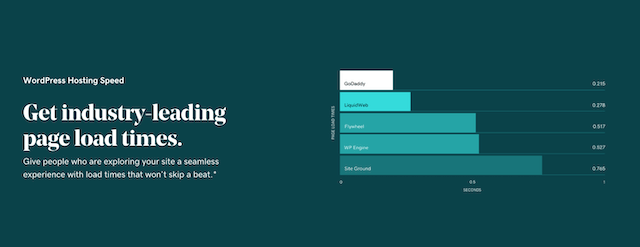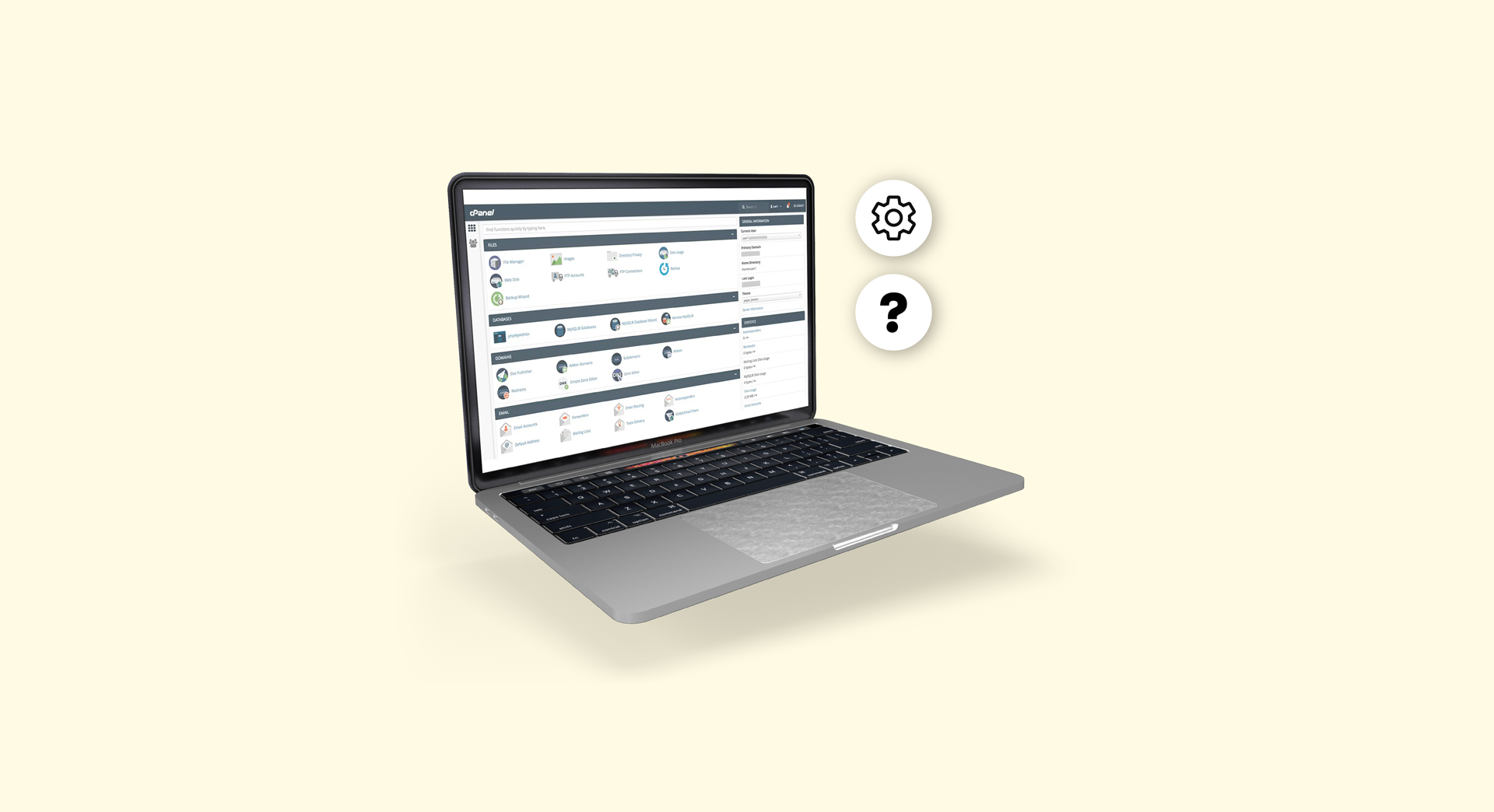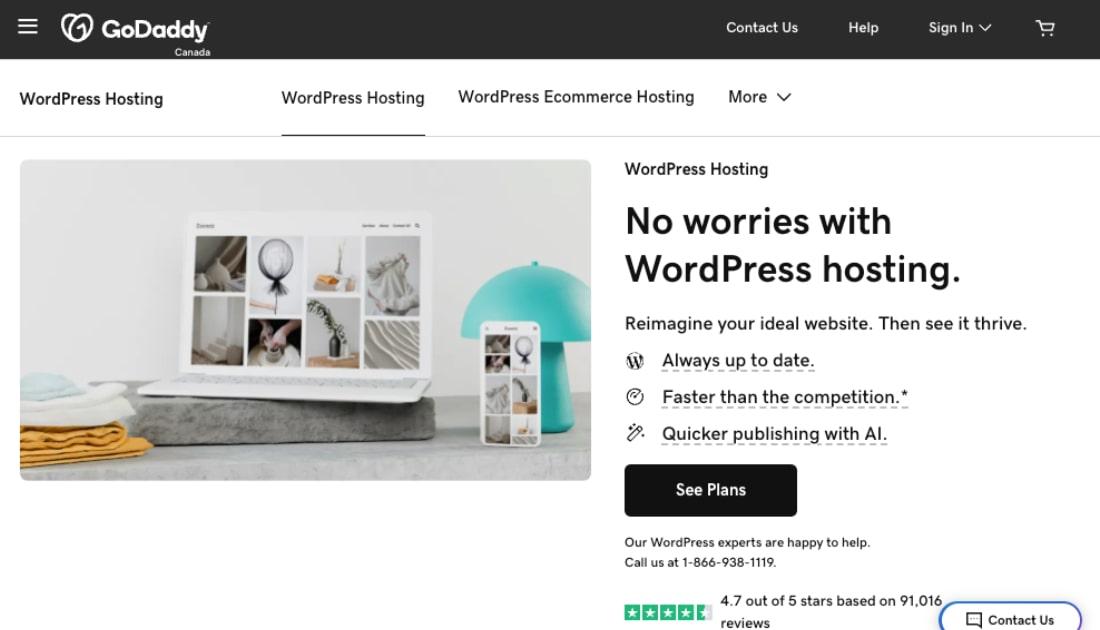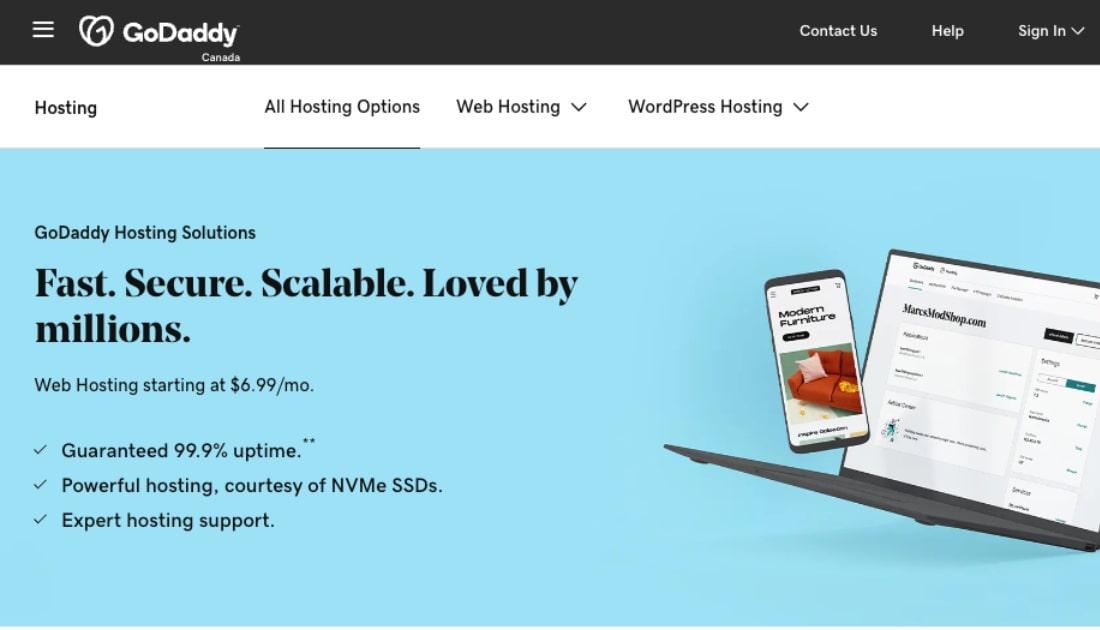If you manage a business website, you’ll benefit from a website control panel. Provided by your web hosting service, this dashboard allows you to manage your servers and hosting services.
One of the most popular options is cPanel, both because it:
- Offers many great management features
- Is relatively easy to handle for beginners, so long as they have the right hosting provider
In this piece we’re breaking down cPanel basics, then taking a look at the impact of this popular panel, its pros and cons, and how Canadian companies can find their best-fit hosting provider.
What is cPanel?
cPanel is Linux-based control panel that provides a desktop-like experience for individuals and companies to manage their websites.
cPanel offers a simple, graphical user interface (GUI) that lets users easily select and complete tasks on-demand.
Some of the popular tasks that can be performed using cPanel include:
- Publishing websites
- Managing domains
- Organizing files and folders
- Creating email accounts
- Backing up key data
Businesses can also use cPanel to create and manage databases that are used by content management systems (CMS) such as WordPress.
CPanel makes it easy to create databases using frameworks such as MySQL, then manage these databases by adding or removing users and adjusting their permissions.
How many businesses use cPanel?

According to W3Techs, cPanel is the second-most used website control panel, used by 9% of sites worldwide and falling only behind Plesk.
It makes sense: Not only is the panel easy to use, but the cPanel community continues to create new features to improve the cPanel experience.
As noted by the official cPanel “Up Next” page, the control panel will be phasing in the Jupiter GUI this year in addition to offering full support for Ubuntu LTS 20.04 and MariaDB 10.6.
cPanel is also retiring support for WordPress Manager in favor of WordPress Toolkit.
The Pros and Cons of cPanel
If you’re considering a cPanel deployment for your website, it’s worth knowing both sides of the story. That’s why we’ve compiled a list of the most-common pros and cons of cPanel.
While for most companies the pros significantly outweigh the cons, it’s worth knowing where this website manager excels – and where it falls short – before making your decision.
Pros of cPanel
Let’s start with the positives:
User-friendly

CPanel is designed to be user-friendly and simple to understand, making it easy for SMBs to quickly manage their website settings and identify any issues at-a-glance.
In addition, navigation through cPanel is straightforward, making it possible for teams to find what they’re looking for, when they’re looking for it.
Broad compatibility
This web hosting manager is compatible with popular browsers including Google Chrome and Mozilla Firefox, and also supports the deployment of third-party site builders and search engine optimization (SEO) tools.
Plentiful help
As noted above, the cPanel community is highly active. New features and updates are regularly released, and users can quickly get help with specific issues on cPanel forums, or by emailing the company directly.
The community is also a great place to learn about third-party applications that connect with cPanel to provide enhanced functionality.
Large feature set
cPanel includes a large feature set that lets companies quickly:
- Create and manage FTP accounts
- Spin up databases
- Generate backups
- Manage SQL databases
Even better? The streamlined user interface means users spend less time searching for what they need and more time running their businesses.
cPanel cons
Now for the negatives:
Security concerns
Issues have been reported with cPanel’s two-factor authentication model, with some versions of the website manager susceptible to brute-force attacks. If you do decide to go with cPanel, it’s worth ensuring that your version is always up to date.
Related: Small business network security in the age of cyberattacks
Cost considerations
Compared to many other options, cPanel often has the higher cost. Depending on the needs of your business, this cost may be justified. Try to find a hosting provider with an enterprise license that lets your company use the license at a cheaper price than buying it outright.
Possible data loss
On rare occasions, problems with cPanel updates can cause loss of features, settings, or even key business data. As a result, it’s worth backing up your cPanel deployment in case of disaster.
5 things to look for in a cPanel hosting provider
If you’ve decided that cPanel is the right choice for your business, you’ll need a solid cPanel hosting provider. The challenge? With so many web hosting companies now available, it’s often hard to pick one that best meets your needs – and avoid those that can’t live up to their promises.
While every small business has their own unique requirements, there are some general rules of thumb that can help you pick a provider that best aligns with operational requirements.
Hardware stack
Server hardware uses the same components as a desktop PC like memory, hard drives and CPUs. The difference is that much of the equipment in a server is customized for more dedicated functions.
What type of hardware does your prospective cPanel hosting provider run?
What type of CPUs do they use, and how much storage is available? Is it spinning disk? Flash? SSDs? Do they have enough RAM to support multiple websites simultaneously?
Make sure any hosting provider you’re seriously considering uses up to date server hardware.
Uptime record
If your hosting provider goes down, your cPanel and websites go down as well. Best bet? Ask your potential provider directly about their uptime guarantee, and then do a search for yourself to see what actual users have to say. Don’t settle for anything less than 99.9% uptime.
Available bandwidth
All the hardware and uptime in the world won’t matter if the bandwidth pipeline provided is too narrow.
Ask how much bandwidth you’re allowed each month, as well as their upload and download speeds. Then read the fine print to make sure your bandwidth won’t be throttled after a certain point.

Support services
Is your cPanel hosting provider there when you need them? While the cPanel forums are a great place for general information, what happens if you have a more pressing concern? Look for a provider that offers 24/7/365 service and a service guarantee as part of its pricing plans.
CMS-centric hosting
It’s also a good idea to find a hosting provider that has experience with CMS hosting.
With tools such as WordPress, Drupal and Joomla now critical for companies to deliver engaging user content, having a control panel/CMS expert on your side is well worth the cost.
cPanel: a solid choice
Without effective hosting, site managers are left to handle both simple and more complex management tasks themselves, which can lead to:
- Website performance problems
- Downtime
- Lost revenue if users can’t click through to the products or services they want
While cPanel isn’t perfect, it’s a great choice for Canadian businesses looking for both simplicity and power in website management.
Ready to get started with cPanel hosting? GoDaddy has you covered. Let’s go.









